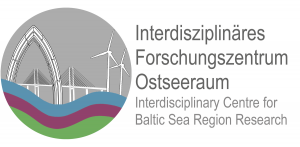IKEM is happy to welcome Dr. Benjamin L. Schmitt for a lecture on the leading national security objectives that will be necessary to maintain popular public support for a “just transition” towards a decarbonized energy system. Dr. Schmitt is a senior fellow at the University of Pennsylvania and an expert on European energy security, transatlantic national security, export control policies, and modern sanctions regimes.
Abstract
As the global community continues to grapple with the measures that are needed to address the ongoing climate crisis, the concept of a “just transition” has become a key driver for policy planning in terms of balancing the social costs and technical realities of the shift toward a decarbonized the global economy. The “just transition” construct is often focused on the need to implement climate mitigation efforts that ensure climate justice so that the burdens, effects, and costs are not disproportionately harming vulnerable populations around the globe, and that occupational and economic opportunities associated with the transition are shared equitably between leading economies and the developing world.
Conspicuously missing from much of the focus on a “just transition” is the recognition of macro-level national security and human rights realities that can’t be ignored simply to achieve global climate objectives. Changing our view and integrating national security and counter-corruption strategies into the climate justice framework will be vital to ensure that the German Energiewende doesn’t repeat mistakes of the past, endangering European energy and national security via the pursuit of authoritarian-backed energy and critical infrastructure projects like the Nord Stream pipelines, which were never “Just a Commercial Deal” for European security.
This event is organized in cooperation with the journal “Klima und Recht” and the Interdisciplinary Centre for Baltic Sea Region Research (IFZO) at the University of Greifswald.







